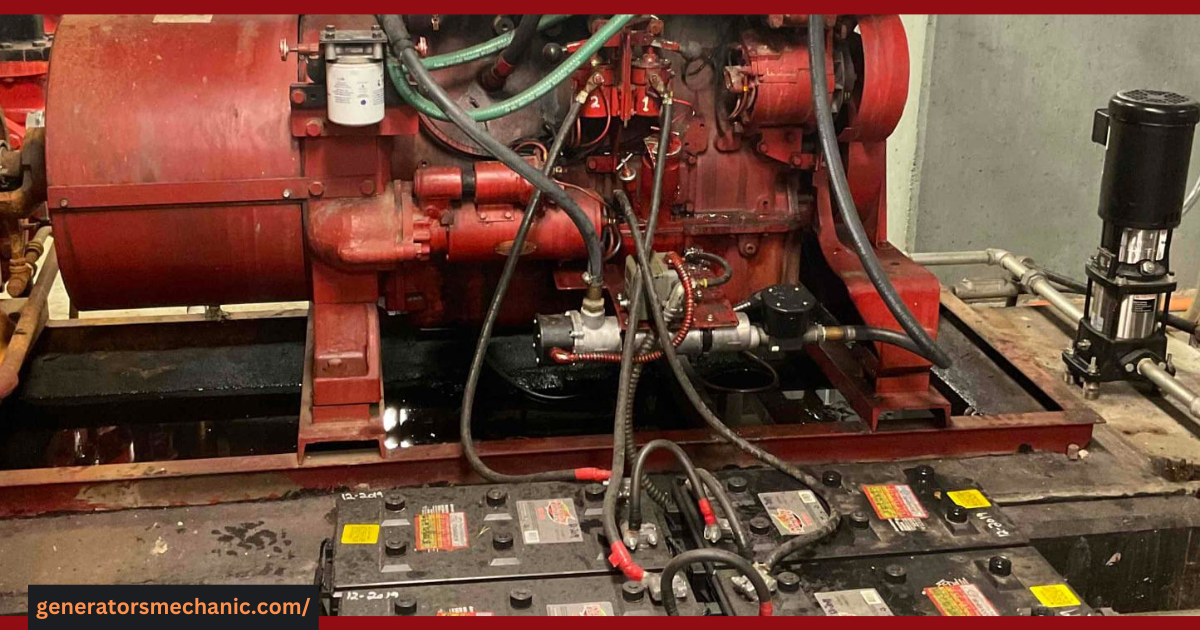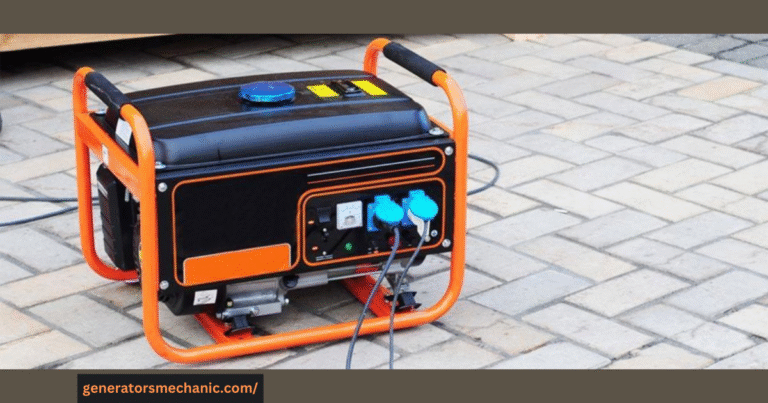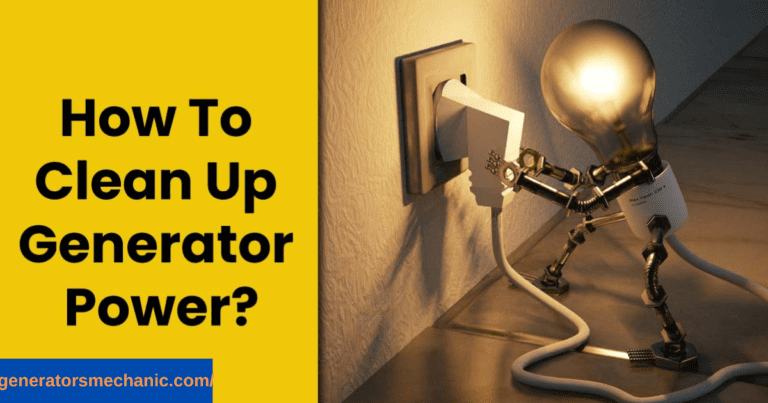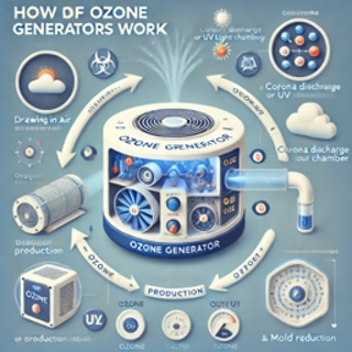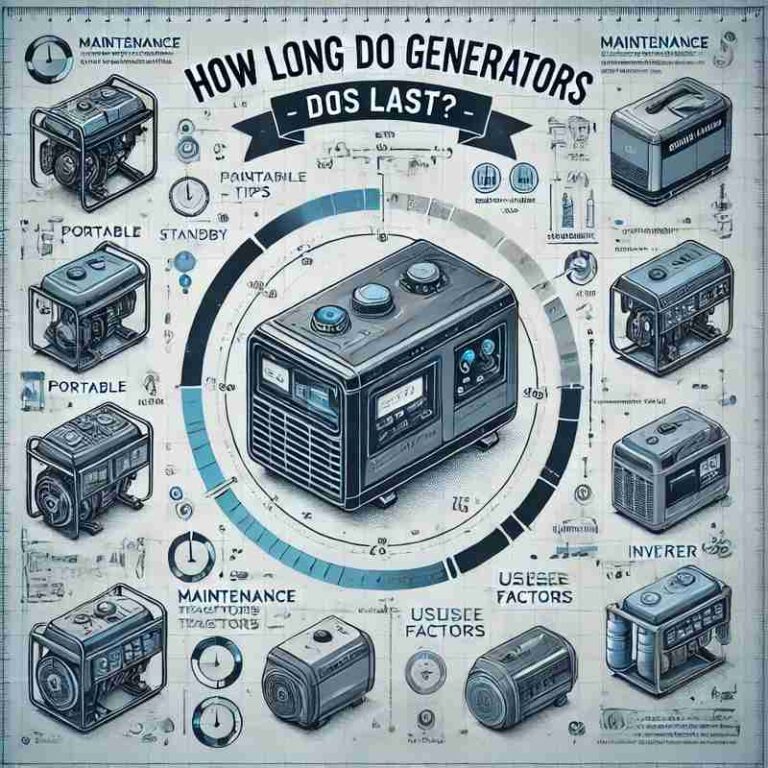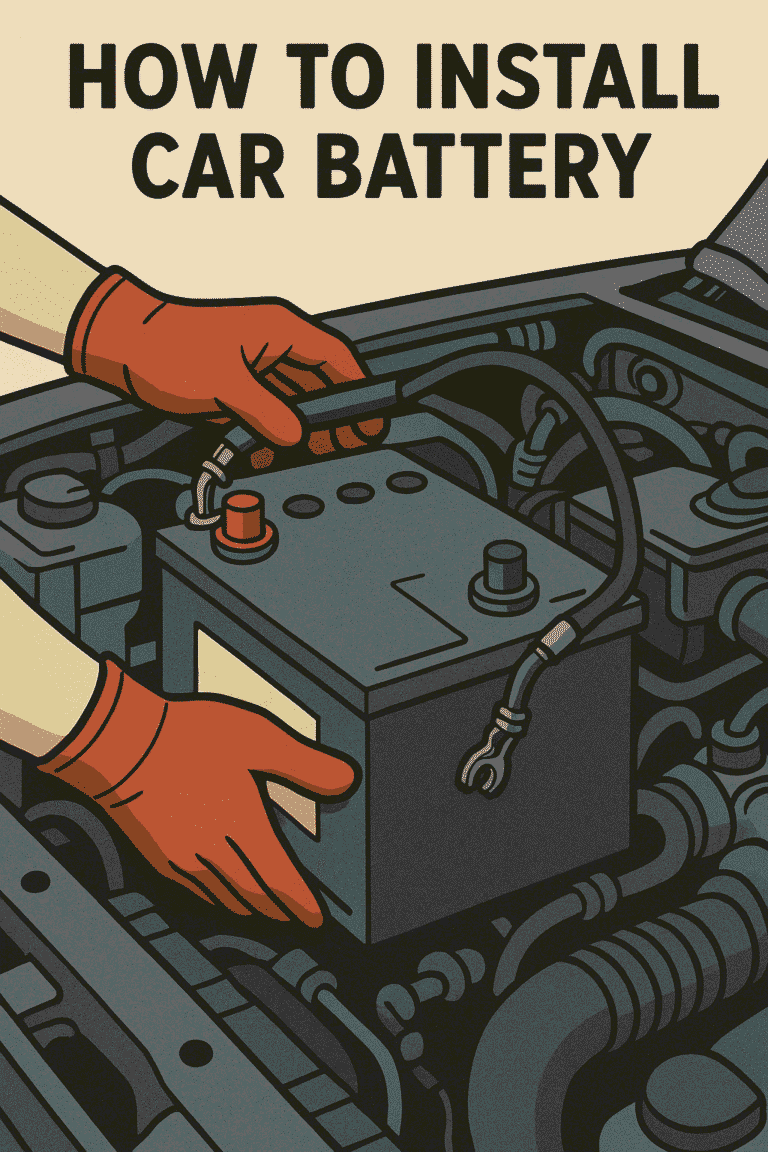Can a Generator Damage Electronics – Safe vs Unsafe Generators Explained
Many people worry about plugging their expensive devices into a generator, and for good reason. Generators that produce unstable voltage or sudden power surges can indeed harm sensitive electronics like laptops, TVs, or gaming consoles. The risk mainly comes from conventional models that don’t regulate power properly, especially during sudden load changes.

If you’ve ever searched online, you might have seen discussions such as “Can a generator damage electronics reddit”. These forums often highlight real-life cases where poor-quality or old generators caused issues like flickering screens, overheating chargers, or even device failure. While not every generator is unsafe, it’s important to know the difference between standard open-frame units and modern inverter generators, which produce clean and stable electricity.
In short, yes—a generator can damage electronics if it’s not the right type or if it’s poorly maintained. But with the right precautions and the right generator model, you can safely power your devices without worry.
Generators are lifesavers during power cuts, outdoor trips, and even in emergencies. But one question often makes people hesitate: can a generator damage electronics? The short answer is yes—it’s possible if you’re not careful. Let’s explore how this happens, which generators are safer, and what steps you can take to protect your valuable devices.
Why People Worry About Generators and Electronics

When the power goes out, a generator feels like the perfect solution. But at the same time, many homeowners ask themselves: “Why do people worry about generators and electronics?” The reason is simple—modern gadgets are far more sensitive than older appliances. Devices like laptops, smart TVs, routers, and gaming consoles rely on stable electricity. Even a small power surge or fluctuation can shorten their lifespan, corrupt data, or even cause permanent damage.
For families, the fear is not just about losing expensive devices, but also about the inconvenience of sudden failures—imagine your internet cutting out in the middle of important work, or a medical device shutting down during a power outage. These risks make people cautious about plugging electronics directly into a generator without understanding how safe or unsafe the power supply really is.
The Growing Need for Backup Power
In today’s world, almost everything depends on electricity—our homes, offices, and even medical equipment. So, when the lights go out, a generator becomes the first backup option.
Sensitive Nature of Modern Devices
Unlike older appliances, today’s electronics, such as laptops, gaming consoles, TVs, and routers, are very sensitive to unstable power. Even small fluctuations can cause long-term damage. That’s why many people worry about plugging expensive devices directly into a generator.
How Generators Can Potentially Damage Electronics
Generators are designed to provide backup power, but not all of them deliver electricity cleanly and consistently. The biggest issue lies in voltage fluctuations—sudden spikes or power drops. Sensitive electronics like laptops, televisions, and gaming consoles rely on steady current, so even small changes can stress their delicate circuits. Over time, this can shorten their lifespan or cause permanent damage.
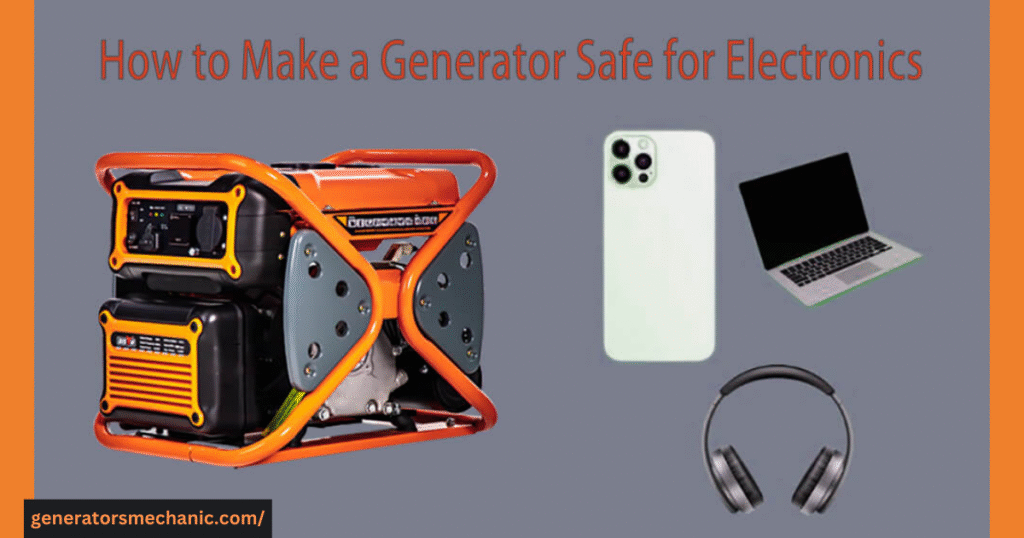
Another factor is frequency instability. Conventional generators sometimes create what’s known as “dirty power,” which includes unwanted harmonics. These irregularities may not bother heavy appliances like refrigerators or fans, but they can confuse and even overload devices that require precise current.
Cheap or older generator models are also riskier because they often lack advanced regulation systems. Without built-in protection, plugging in sensitive electronics becomes a gamble. This is why people often ask: How to make a generator safe for electronics? The solution usually involves using inverter generators, surge protectors, or voltage regulators to ensure your devices receive clean and stable electricity.
Voltage Fluctuations and Power Surges
Not all generators deliver a steady power flow. Sudden spikes or drops in voltage can harm delicate circuits inside electronics.
Harmful Harmonics and Frequency Instability
Some generators produce “dirty power” with unstable frequency and harmonics, which can confuse or overload sensitive devices.
Poor Quality or Old Generators
Outdated models, or cheaper ones without voltage regulation, are more likely to produce inconsistent power that may damage electronics.
Safe vs Unsafe Generators for Electronics
Not all generators are created equal when it comes to powering sensitive electronics. Some are designed to deliver clean, stable electricity, while others may cause harmful fluctuations. Understanding the difference between safe and unsafe generators can save you from costly repairs and device failures.

Unsafe generators are usually older or standard open-frame models. These machines often produce inconsistent voltage and frequency, which can lead to power surges or dips. Over time, such instability can stress delicate circuits inside your devices. Many people also ask, Can a generator damage appliances? The truth is, yes—an unsafe generator has the potential to harm not only electronics like laptops and TVs but also larger household appliances such as refrigerators, washing machines, and air conditioners.
On the other hand, safe generators—like inverter generators or standby units with automatic voltage regulators—are built with modern technology to protect your equipment. They ensure the electricity output is smooth and consistent, similar to what you get from the grid. This makes them much safer for powering both sensitive electronics and everyday appliances without the risk of long-term damage.
Conventional (Standard) Generators
These are the traditional open-frame models. While they’re affordable and powerful, their power output isn’t always stable—making them risky for electronics.
Inverter Generators
Inverter generators are considered the safest option for sensitive devices. They convert raw power into clean, stable electricity, often as reliable as grid power.
Standby Generators with Built-in Regulators
Larger standby units often include automatic voltage regulators (AVRs), which help keep power consistent. This makes them safe for most household electronics.
Signs Your Generator May Be Hurting Electronics
Sometimes the damage caused by a generator doesn’t show up immediately—it appears slowly over time. That’s why it’s important to notice the warning signs before your devices fail. If you see flickering lights, random device shutdowns, or overheating chargers, it may mean your generator is sending unstable power. Sensitive gadgets like laptops, TVs, and routers are the first to react, but even bigger appliances can be affected.
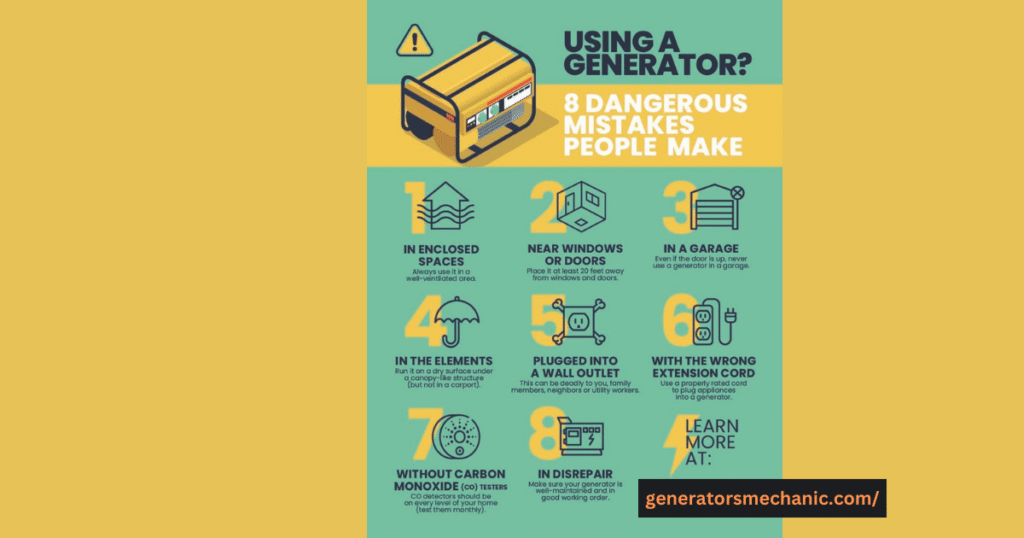
Many homeowners also ask: “Will a generator damage my furnace?” The answer is yes if the generator isn’t providing clean and stable electricity. Furnaces rely on electronic control boards and sensitive circuits that can be harmed by power surges or voltage fluctuations. If your furnace struggles to start, shuts down unexpectedly, or shows error codes while running on generator power, it’s a clear sign the supply isn’t steady enough.
Catching these symptoms early can save you from costly repairs. The safer option is to use an inverter generator or add a surge protector or UPS system, so your electronics—and your furnace—stay protected.
Flickering Lights and Screens
If your lights or TV screens flicker when powered by a generator, that’s a warning sign of unstable voltage.
Overheating Chargers or Adapters
Warm or unusually hot chargers may indicate that the generator is sending inconsistent power.
Unexpected Shutdowns or Device Errors
If your laptop, console, or router restarts suddenly, it could be a result of power instability from the generator.
How to Protect Your Electronics from Generator Damage
Nobody wants to lose an expensive laptop, gaming console, or smart TV just because of unstable generator power. The good news is, with the right precautions, you can safely run your devices without worrying about long-term damage.
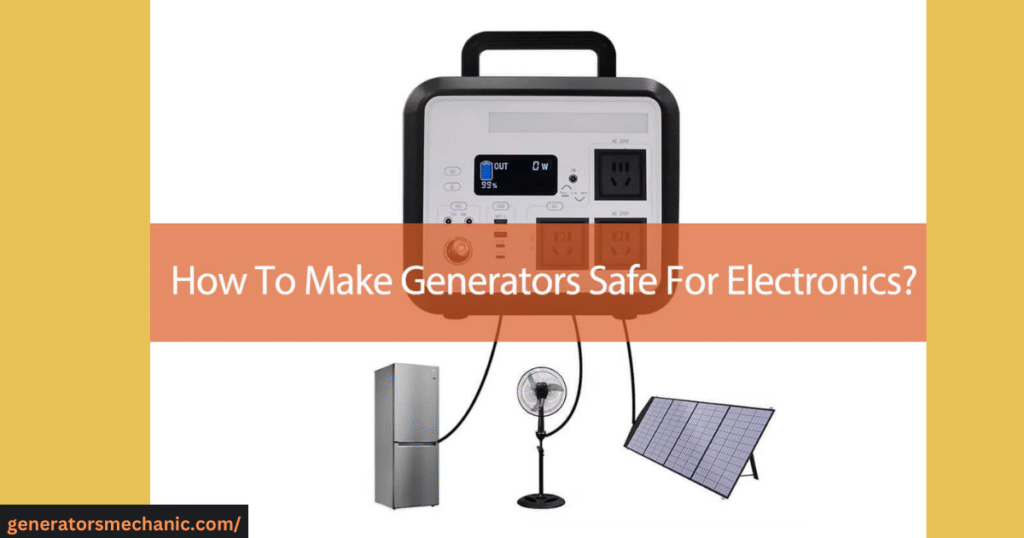
The first step is to invest in a surge protector or UPS system. These devices act like bodyguards for your electronics, absorbing sudden spikes in voltage and keeping the power flow steady. This way, even if your generator fluctuates, your electronics remain safe.
Another reliable solution is choosing the right generator type. Many people ask, “Are inverter generators safe for electronics?” The answer is yes. Inverter generators are specifically designed to deliver clean and stable electricity that closely mimics grid power. That’s why they’re considered the safest option for powering sensitive devices.
Finally, never ignore regular maintenance. A poorly maintained generator can produce more noise and more unstable power. Keeping it serviced, using the right extension cords, and placing it in a well-ventilated area will not only protect your gadgets but also improve the generator’s lifespan.
Use Surge Protectors or UPS Systems
A surge protector or uninterruptible power supply (UPS) acts like a shield between your generator and devices, absorbing sudden spikes.
Invest in Inverter Technology
If you regularly need to power sensitive electronics, go for an inverter generator. They’re quieter, more fuel-efficient, and much safer for gadgets.
Regular Maintenance and Proper Setup
Keeping your generator serviced ensures smoother operation. Also, place it in a well-ventilated space and use the right extension cords to prevent power loss.
Common Myths About Generators and Electronics
There are many misconceptions about how generators interact with electronics, and these myths often confuse buyers. One common belief is that all generators are unsafe for modern devices. In reality, not every generator is harmful—inverter models and standby units with built-in voltage regulation can safely power sensitive gadgets.
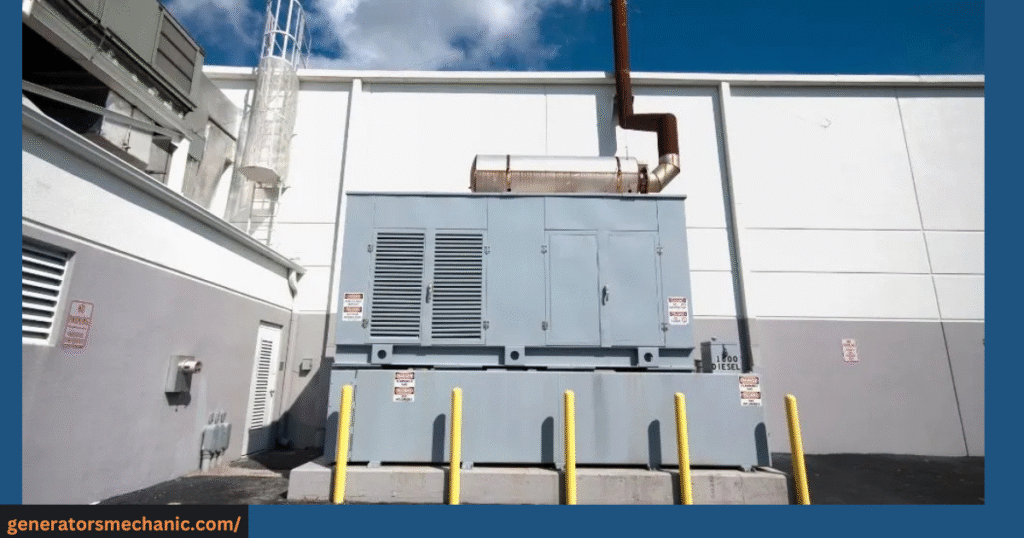
Another myth is that simply buying a bigger generator means your electronics will be safe. Wattage alone doesn’t guarantee clean or stable electricity. Even a large generator can cause fluctuations that put your devices at risk.
Finally, many people assume that modern electronics don’t need extra protection. The truth is, today’s gadgets are more delicate than ever. Using a surge protector adds an extra layer of defense, shielding your devices from sudden voltage spikes and making generator power far more reliable.
“All Generators Are Dangerous for Electronics”
Not true. While some generators can be risky, inverter and regulated models are specifically designed to protect electronics.
“Higher Wattage Means Safer Power”
Wattage and safety are not the same thing. Even a high-wattage generator can harm electronics if the power is unstable.
“New Devices Don’t Need Protection”
Modern gadgets are more vulnerable, not less. Always use protection like surge protectors, no matter how new your devices are.
Final Thoughts – Keeping Your Devices Safe
At the end of the day, the safety of your electronics depends on the quality of power your generator delivers. While some models may produce unstable electricity, you can easily avoid potential risks by choosing the right equipment and using extra protection. One smart investment is a power conditioner for a generator, which helps regulate voltage and filter out electrical noise before it reaches your devices. Combined with surge protectors or even a UPS, this adds a strong layer of security.
The rule is simple: don’t compromise on protection. A reliable generator, paired with the right accessories, ensures your gadgets—from smartphones to home office setups—stay safe and last longer. With these precautions, you can enjoy the benefits of backup power without worrying about damaging your valuable electronics.
So, can a generator damage electronics? Yes, but only if the power is unstable. With the right generator type, proper accessories, and a little care, you can safely power everything from your smartphone to your home office.
The key is simple: choose wisely, invest in quality, and always protect your electronics before plugging them in.
🔹FAQs:
Can a generator really damage electronics?
Yes. Poorly regulated or old generators can cause power surges and unstable voltage that may harm sensitive devices like laptops, TVs, and routers.
Which type of generator is safe for electronics?
Inverter generators are the safest choice. They produce clean, stable power that mimics grid electricity, making them ideal for modern gadgets.
How can I protect my electronics when using a generator?
Use surge protectors, UPS systems, or voltage regulators. Investing in inverter technology also provides stable and safe power.
What are the signs my generator is harming electronics?
Watch out for flickering lights, overheating chargers, sudden device shutdowns, or error messages while using generator power.
Is higher wattage always safer for electronics?
No. Wattage measures power output, not stability. Even a high-wattage generator can damage electronics if voltage isn’t regulated properly.
Is it safe to charge electronics with a generator?
Avoid connecting your phone directly to the electrical outlets of the generator or attempting any modifications to it. Instead, utilize a dependable and appropriately rated power inverter or a generator equipped with USB ports specifically intended for charging electronic devices.
Is it safe to plug a TV into a generator?
Technically, it is feasible. However, doing so without adequate protection is akin to riding a motorcycle without a helmet—possible, yet unwise. Without a surge protector, your television is vulnerable to voltage spikes. Such issues may arise when the generator starts, stops, or undergoes abrupt changes in power demand.
Is it safe to plug a computer into a generator?
One significant risk associated with operating a computer on a generator is the potential for voltage fluctuations and power surges. These variations can harm sensitive components within the computer. To reduce this risk, it is advisable to use a generator that features built-in voltage regulation and maintains a stable frequency.
What appliances should not be used with a generator?
Identifying appliances that have high starting and running wattage requirements for your generator is crucial. Numerous appliances consume more power during startup than they do while in operation. This surge can overload smaller generators. Consider items such as refrigerators, freezers, power tools, and pumps.
Will a generator damage my electronics?
Investing in generators that have low Total Harmonic Distortion (THD) levels is vital to minimize risk. Power surges, which may occur during the switch from utility to generator power, present a considerable threat to electronic devices. These surges can damage delicate components, resulting in expensive repairs or replacements.
Is it safe to charge a laptop on a generator?
Indeed, a generator can be utilized to charge a laptop, particularly if it supplies AC power. Just ensure that it delivers stable power to prevent damage to your laptop’s internal components.
How do I make my generator safe for electronics?
For those on a reasonable budget, the most straightforward method to ensure that generator electricity is safe for electronics is to use an inverter generator. With conventional generators, it is advisable to add extra surge protection to provide your electronics with the clean power they require and shield them from potential damage.

